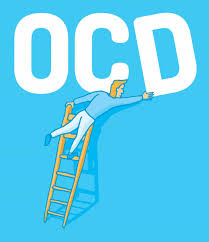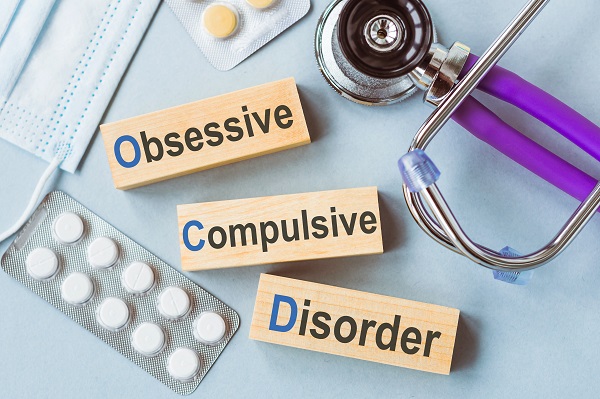Obsessive-compulsive disorder (OCD) is an anxiety disorder that can be extremely debilitating and isolating. Symptoms of OCD can range from persistent intrusive thoughts to rituals and behaviors, to compulsive urges. Navigating the best psychotherapy for OCD can seem like a daunting task. Fortunately, with the right knowledge and guidance, you can find a treatment plan that works for you. In this article, we will discuss the different psychotherapy options available for those with OCD and how they can help alleviate symptoms and increase the quality of life.
Contents
What is OCD?

Obsessive-Compulsive Disorder, or OCD, is an anxiety disorder that is characterized by obsessions and/or compulsions. Obsessions are intrusive, unwanted thoughts, images, or urges that cause distress or anxiety. Compulsions are repetitive behaviors or mental acts that a person feels compelled to do in order to relieve the anxiety caused by the obsessions.
OCD can be a very debilitating condition that can interfere with all aspects of a person’s life. It is estimated that 1 in 100 adults worldwide suffers from OCD. The good news is that there are effective treatments available for OCD.
The Different Types of Psychotherapy for OCD
Many different types of psychotherapy can be effective in treating OCD. Some of these are:
Cognitive Behavioral Therapy
One of the most widely used and effective therapies for OCD is cognitive-behavioral therapy (CBT). CBT involves changing thought patterns and behaviors to reduce symptoms of OCD. It typically includes elements of exposure and response prevention (ERP) in which a person gradually confronts their fears and learns to resist the urge to perform compulsions. CBT also helps to reduce stress and anxiety, which can help reduce symptoms of OCD.
Exposure Therapy (ERP)
Exposure therapy (ERP) is a type of cognitive-behavioral therapy that involves gradually exposing yourself to the source of your fear or anxiety. This can help you learn to manage your fear or anxiety healthily rather than relying on compulsive behaviors. ERP is highly effective in treating OCD when done with guidance from a qualified therapist. When done correctly, ERP can result in a significant reduction of OCD symptoms.
Psychodynamic Therapy
Psychodynamic therapy is another treatment option for OCD. It focuses on exploring underlying psychological issues and helping the person gain insight into their thoughts and behaviors. Psychodynamic therapy also helps to reduce anxiety and stress levels, which can help with reducing OCD symptoms. Psychoanalysis, another type of psychodynamic therapy, is a longer-term form of therapy that focuses on exploring the unconscious mind and resolving deep-seated psychological issues.
Mindfulness-Based Cognitive Therapy (MBCT)
Mindfulness-based cognitive therapy (MBCT) is another form of treatment for OCD that involves learning mindfulness techniques to help better manage anxiety and intrusive thoughts associated with OCD. MBCT is effective in treating OCD, as well as other mental health conditions such as depression and anxiety.
Family/Couples Therapy
Family/couples therapy is a type of psychotherapy that involves working with family members or couples to understand how certain relationships may be impacting individual behavior or mental health. This type of therapy can help understand the dynamics within a family system and how this might affect an individual’s OCD symptoms. Through family/couples therapy, individuals can learn healthy communication skills and better manage stressors related to OCD.
Acceptance & Commitment Therapy
Acceptance & Commitment Therapy (ACT) is an evidence-based psychotherapy that focuses on teaching skills for accepting difficult thoughts, feelings, and sensations without being overwhelmed by them. ACT helps people learn how to stay in the present moment and accept life as it is rather than struggling against or avoiding unpleasant thoughts, feelings, or situations. This type of therapy is helpful for those with OCD, as it can help people become more aware of their behavior and better manage anxiety and stress.
Pros of Psychotherapy for OCD
There are many benefits of using psychotherapy for OCD, including:
Decrease in Obsessions and Compulsions
One of the main goals of psychotherapy for OCD is to reduce obsessions and compulsions. With the right treatment, it is possible to reduce or even eliminate these intrusive thoughts and behaviors that can make daily life difficult. Some of the coping skills learned in psychotherapy can be used to manage OCD symptoms, even after treatment has ended.
Increased Self-Awareness and Insight
Psychotherapy can help those with OCD gain a better understanding of their triggers and patterns of behavior. This increased insight may help them find more constructive ways to cope with their intrusive thoughts and behaviors. These new skills can be used to manage symptoms and increase the quality of life.
Improved Quality of Life
Psychotherapy can help those with OCD live a more meaningful and fulfilling life. Treatment can provide them with tools, such as coping skills, that can help them manage their symptoms and improve their overall well-being. As they learn to challenge their thoughts and behaviors healthily, they may find that their quality of life increases.
Decreased Anxiety
Psychotherapy can help decrease the anxiety associated with OCD symptoms. This can be very helpful in reducing the stress of living with this disorder. As the individual learns more effective coping strategies and has greater insight into their condition, they may find that their anxiety levels decrease.
Overall, psychotherapy can be a highly effective treatment approach for OCD. It can provide individuals with tools to better manage their symptoms and ultimately lead to an improved quality of life.
Cons of Psychotherapy for OCD
There are many benefits to psychotherapy for OCD, but there are also some potential drawbacks. These include:
Cost
The cost of psychotherapy may be prohibitive for some individuals with OCD. Depending on the type of therapy and the geographic location, the costs can vary significantly. It is important to keep in mind that even if it is not possible to afford traditional psychotherapy, there are often free or low-cost options available.
Time Commitment
Psychotherapy for OCD is a long-term process that requires dedication and commitment from both the individual and their therapist. Treatment typically takes months or even years to make lasting changes in behavior and thought patterns.
Difficulty Implementing Changes
Even after individuals have learned new skills through psychotherapy, it can be difficult to change long-standing patterns of behavior. It takes time and dedication to apply the new skills in everyday life and make lasting changes.
Overall, psychotherapy for OCD can be a beneficial treatment approach that leads to better symptom management and improved quality of life. However, it is important to keep in mind that there may be some drawbacks as well.
What is the Best Psychotherapy for OCD?
Many factors can influence the type of psychotherapy chosen, including the individual’s symptoms, triggers, and support system. Each person may respond differently to different types of therapy based on their specific needs. Additionally, it is important to work with a mental health professional that has experience in treating OCD to ensure the most appropriate treatment approach is selected.
The best psychotherapy for OCD is the one that best meets the individual’s specific needs. It is important to work with a mental health professional to find the right treatment approach that can help reduce symptoms and improve quality of life. With the right treatment, individuals can learn coping skills to manage their condition and lead a more fulfilling life.
How to Find the Right Therapist for You?
There are many different types of therapists out there, and it can be hard to know which one is right for you. If you’re looking for help with OCD, it’s important to find a therapist who specializes in treating this disorder. Here are a few tips on how to find the right therapist for you:
1. Talk to your doctor or mental health professional. They can give you referrals to therapists who specialize in OCD treatment.
2. Look for a therapist who has experience treating OCD. You can ask them about their training and experience treating OCD specifically.
3. Make sure the therapist you choose is someone you feel comfortable talking to. You should feel like they understand your needs and can help you work through your OCD symptoms.
4. Be sure to ask about the therapist’s treatment approach. Some therapists use exposure and response prevention (ERP), which is proven to be an effective treatment for OCD. Others may use cognitive behavioral therapy (CBT), which can also help treat OCD symptoms.
5. Ask about the therapist’s fees and insurance coverage before making an appointment. This will help you make sure that the therapist you choose is affordable and covered by your insurance plan.
Conclusion
There are a variety of psychotherapy options available for those suffering from OCD. By consulting with your therapist and doing the research, you should be able to find the best therapy for yourself or your loved one. Moreover, it is important to remember that OCD treatment often requires a combination of approaches such as medication, support groups, lifestyle changes, and various psychotherapies to improve symptoms. It may take some time trial-and-error before finding the right fit but seeking help is the first step toward recovery.
For more information and guidance, please contact MantraCare. OCD is a mental health disorder characterized by obsessions and compulsions. If you have any queries regarding Online OCD Counseling experienced therapists at MantraCare can help: Book a trial OCD therapy session


